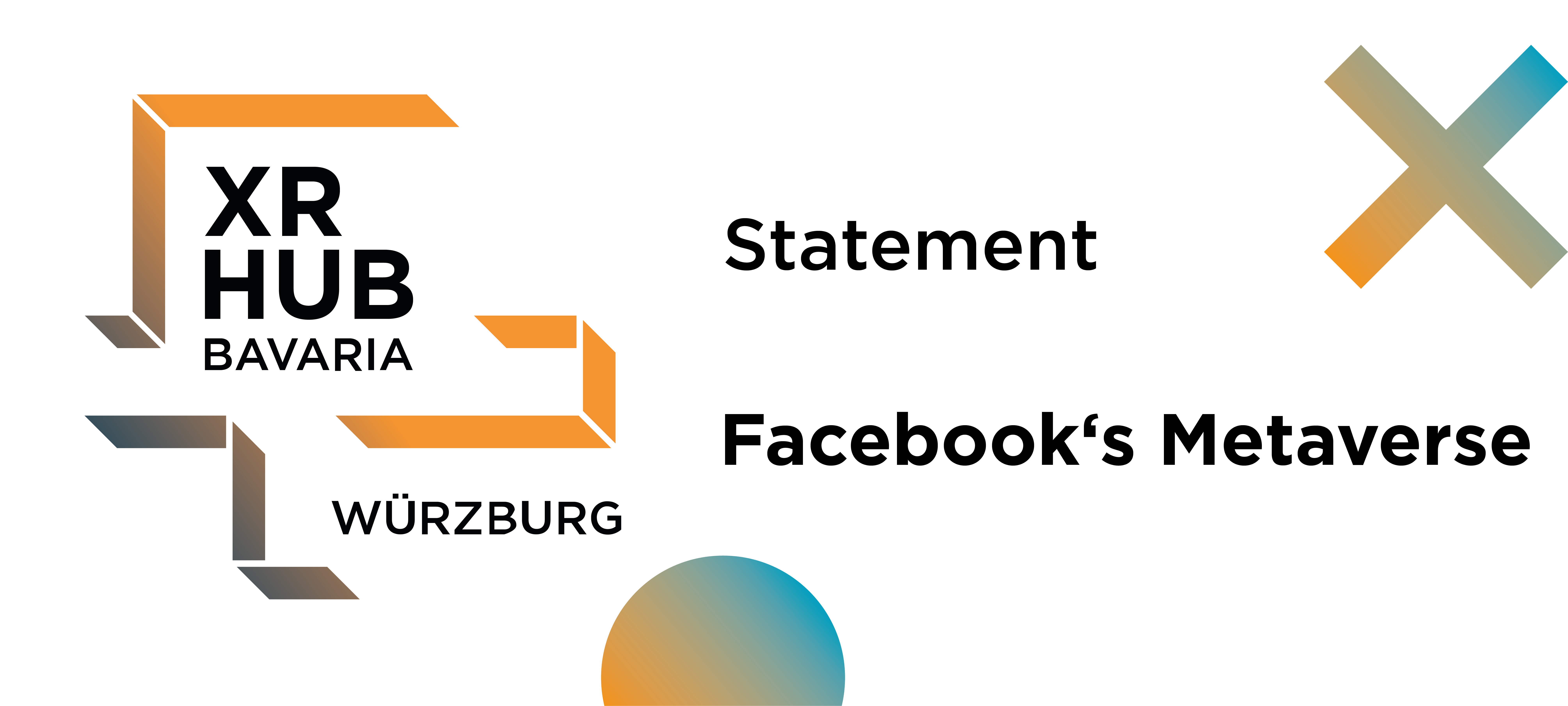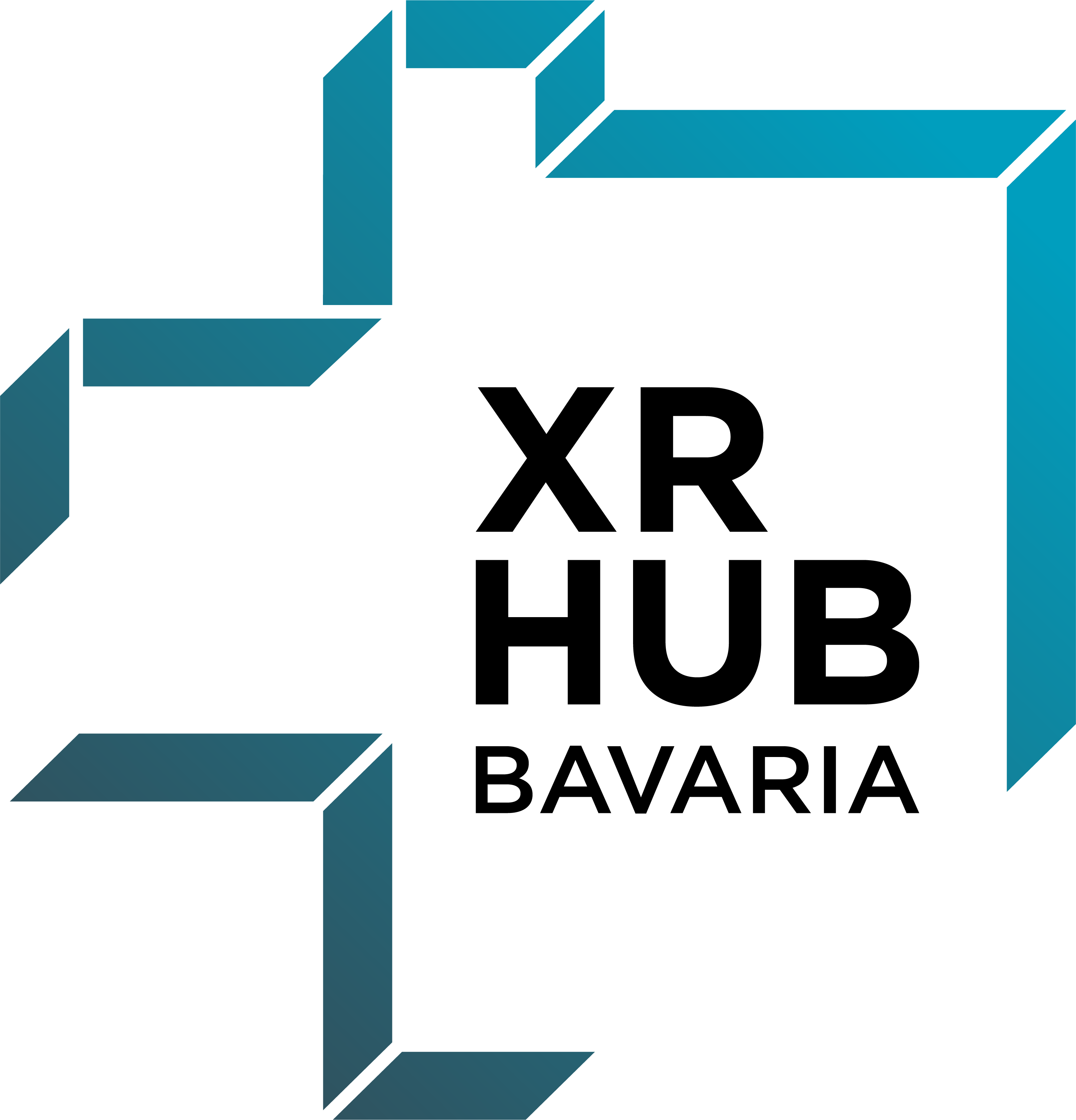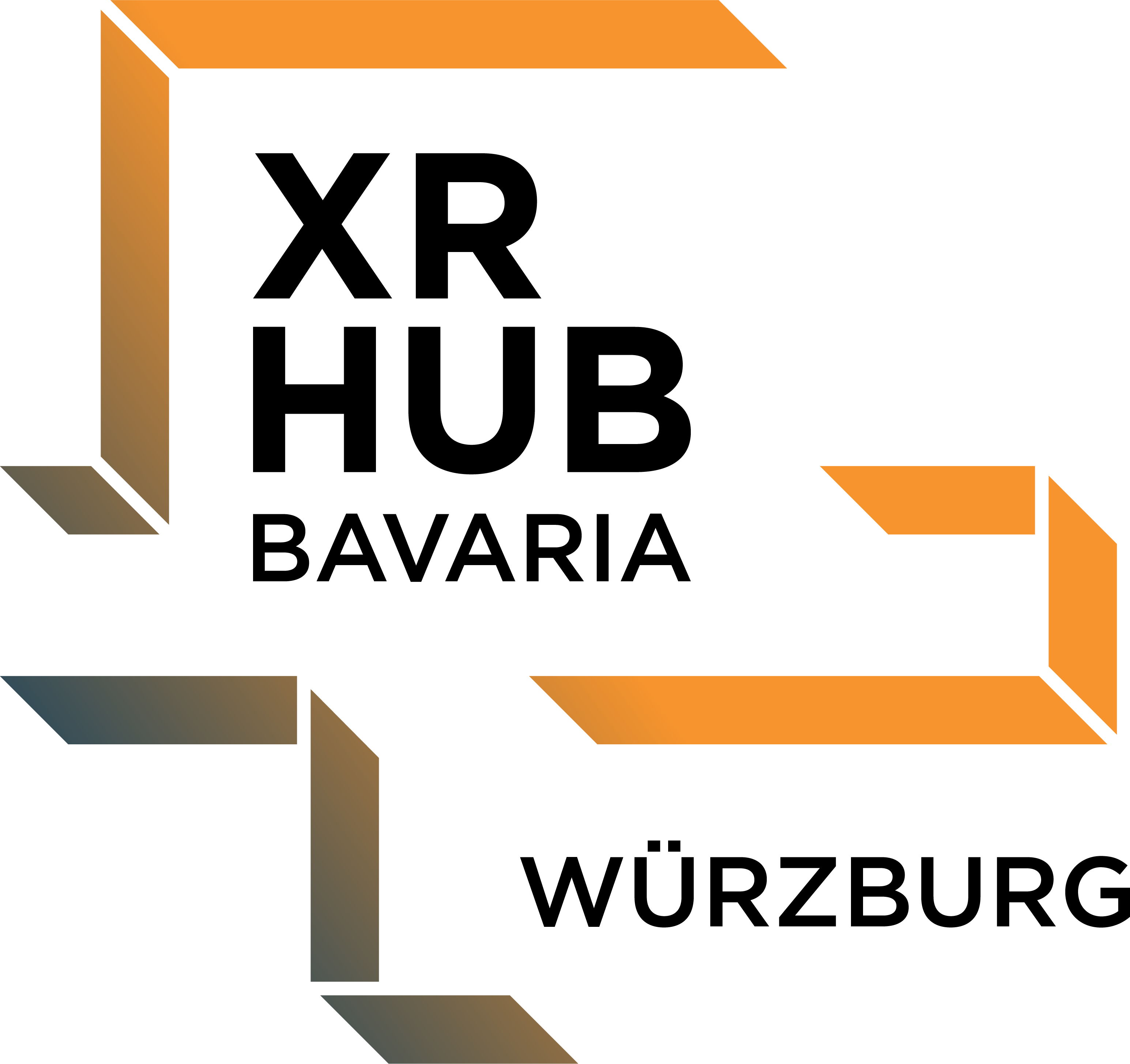Facebook’s Metaverse - The next big thing?
24 Nov 2021

German Version Below
___
The idea of a distributed artificial virtual world, in which participants can meet and interact with each other via different avatars, is anything but new. Well-known authors like Gibson (Cyberspace), Stephenson (Metaverse), Williams (Otherland) or Clide (OASIS) and many others have already written fictionally about the possibilities and consequences of virtual meetings.
In academia, these ideas have also been echoed for decades in the development and exploration of systems of distributed or collaborative VR or, currently, social VR. None of this is new, and just as Oculus did not invent VR, Zuckerberg is not the inventor of the Metaverse. On the contrary, he even uses the term introduced by Stephenson back in 1992 in his book Snow Crash. Whether with or without the author’s consent is beyond our knowledge.
What is really new about the initiative of Facebook aka Meta is the massive strategic interest and financial investment of a global social media player in a technology that has existed for a long time and is regarded by many as a technology with high potential, but which has not yet started its absolute triumphal march. We can certainly expect a further leap in innovation in the future, and not only centrally through Meta itself. However, this singularly driven initiative also carries risks. Facebook has already been massively criticized several times for its corporate policy. It remains up to Meta to show whether they will act differently in any way, for example with regard to the lack of data protection, etc. In the end, this is a company in the market whose primary interest is making profits.
As an XR Hub and an academic chair for Human-Computer Interaction (HCI), we strive to make XR technologies accessible to the general public. Especially in a sensitive area like social communication and then social VR, systems should be secure, open and interoperable. Thus, the XR Hub Würzburg and the HCI group have been developing and operating a scientifically very renowned social VR system for years with the goal of offering secure alternatives to commercial products such as those from Meta here. This self-developed system is already widely used in sensitive areas such as virtual teaching at the University of Würzburg and soon also at universities in Munich, Augsburg and Dortmund. However, the financial and personnel superiority of the large IT corporations is abundantly clear here. This raises the compelling question of how to ensure the long-term support of such proprietary developments. Comparisons with other IT products, where there are already quasi monopolies, come to mind. As an XR hub and as researchers and developers, we want to resolutely oppose such monopolistic developments with all the means at our disposal and are of the opinion that this is also clearly an area for political action. The current spread of social media and its industrial control has already led to a variety of partly undesirable developments ranging from cyber bullying to biased influence on elections. As a society, we should ask ourselves whether this should be repeated with a “next big thing” like social VR?
___
Die Idee einer verteilten künstlichen virtuellen Welt, in welcher sich Teilnehmer:innen verkörpert über unterschiedlichste Avatare begegnen und miteinander interagieren können, ist alles andere als neu. Bekannte Autoren wie Gibson (Cyberspace), Stephenson (Metaverse), Williams (Otherland) oder Clide (OASIS) u.v.a. haben bereits lange über die Möglichkeiten und Folgen virtueller Zusammenkünfte fiktional geschrieben.
In der Wissenschaft finden diese Ideen ebenfalls seit Jahrzehnten ihr Echo in der Entwicklung und Erforschung von Systemen der distributed oder collaborative VR oder aktuell der social VR. Das ist alles nicht neu und so wenig wie Oculus die VR erfunden hat, ist Zuckerberg der Erfinder des Metaverse. Im Gegenteil, er nutzt sogar den von Stephenson bereits 1992 in seinem Buch Snow Crash eingeführten Begriff. Ob mit oder ohne Einverständnis des Autors entzieht sich unserer Kenntnis.
Wirklich neu an der Initiative von Facebook aka Meta ist das massive strategische Interesse und finanzielle Investment eines global Social Media Players in eine Technologie, die seit langem existiert, von vielen als Technologie mit hohem Potential gehandelt wird, die bisher aber ihren absoluten Siegeszug noch nicht angetreten hat. Hier kann man mit Sicherheit in Zukunft einen weiteren Innovationssprung erwarten, nicht nur zentral durch Meta selber. Allerdings trägt diese singulär getriebene Initiative auch Risiken. Schon jetzt ist Facebook mehrfach massiv für die Firmenpolitik kritisiert worden. Es bleibt an Meta zu zeigen, ob sie in irgendeiner Form anders agieren werden etwa in Bezug auf den mangelnden Datenschutz etc. Am Ende ist dies eine Firma am Markt, deren primäres Interesse die Erzielung von Gewinnen darstellt.
Als XR Hub und als akademischer Lehrstuhl für Mensch-Computer-Interaktion sind wir bestrebt, XR Technologien für die Allgemeinheit zu erschließen. Gerade in einem sensiblen Bereich wie der sozialen Kommunikation und dann der social VR sollten Systeme sicher, offen und interoperabel sein. So entwickelt und betreibt der XR Hub Würzburg und der Lehrstuhl für HCI selber seit Jahren ein wissenschaftlich sehr renommiertes social VR System mit dem Ziel, hier sichere Alternativen zu kommerziellen Produkten wie denen von Meta anzubieten. Dieses System wird bereits vielfältig in sensiblen Bereichen wie der virtuellen Lehre an der Universität Würzburg und bald auch an Universitäten in München, Augsburg und Dortmund eingesetzt. Allerdings ist die finanzielle und personelle Übermacht der großen IT-Konzerne hier überdeutlich. Es stellt sich die zwingende Frage, wie man hier die langfristige Sicherung solcher eigenen Entwicklungen sichern kann. Es drängen sich Vergleiche zu anderen IT-Produkten auf, bei denen es bereits heute quasi Monopolstellungen gibt. Als Forscher:innen und Entwickler:innen wollen wir solchen Entwicklungen mit allen uns zur Verfügung stehenden Mitteln entschieden entgegentreten und sind der Meinung, dass hier auch deutlich ein politisches Handlungsfeld entsteht. Bereits die gegenwärtige social media Verbreitung und deren industrielle Kontrolle hat zu einer Vielzahl von teils unerwünschten Entwicklungen vom Cyber Mobbing bis hin zur Einflussnahme von Wahlentscheidungen geführt. Als Gesellschaft sollten wir uns fragen, ob sich dieses bei einem „next big thing“ wie social VR wiederholen soll?
___
Prof. Marc Latoschik und Prof. Carolin Wienrich








